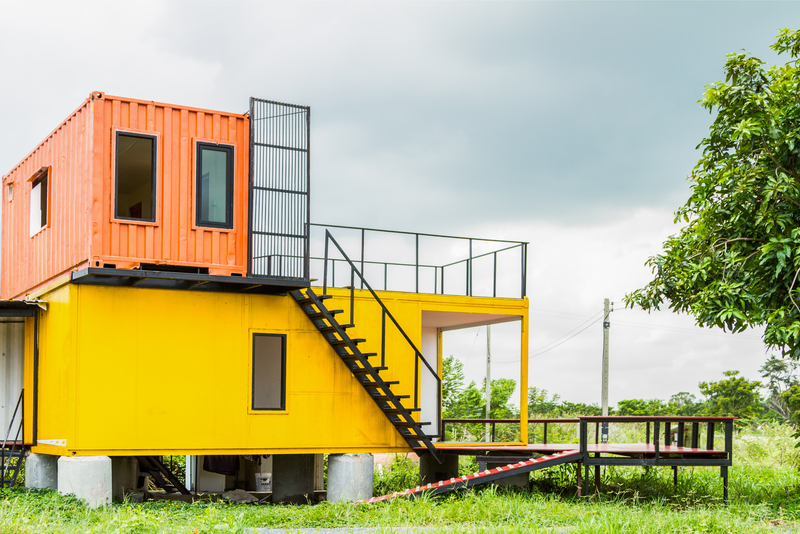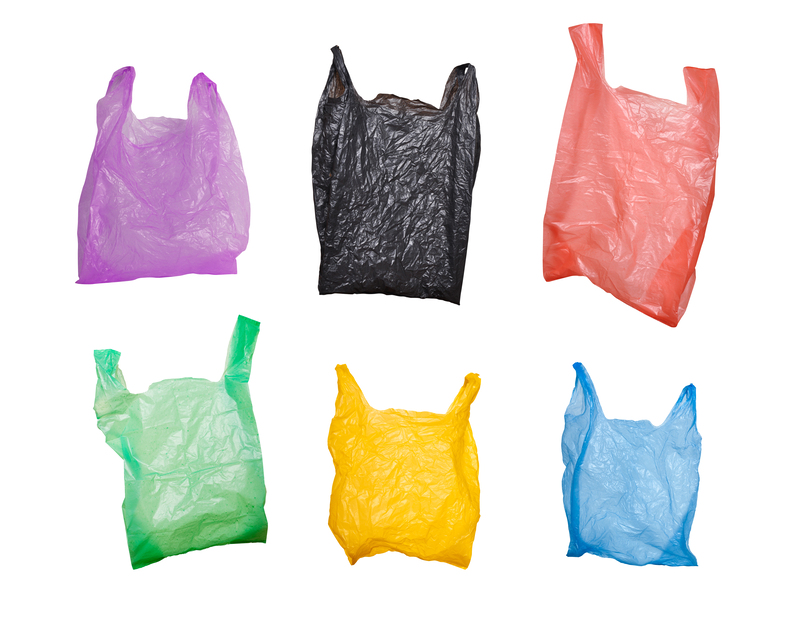Practical Solutions for Responsible PPE Waste Disposal
Personal protective equipment (PPE) like masks, gloves, face shields, and gowns have become daily essentials, especially in healthcare settings and public places. However, with this widespread usage comes the crucial challenge of PPE waste disposal. Without proper handling, PPE waste poses significant risks to our environment, public health, and waste management systems.
As PPE becomes intertwined with our way of life, developing effective and responsible PPE waste disposal solutions has never been more necessary. In this article, we'll explore actionable strategies, industry best practices, and community initiatives that promote sustainable and environmentally-friendly PPE disposal globally.

Understanding PPE Waste and Its Impact
The Surge in PPE Usage
The COVID-19 pandemic drastically increased the production and use of disposable PPE around the world. Healthcare workers, essential service providers, and the public have contributed to a sharp rise in single-use gloves, masks, visors, and gowns. According to recent estimates:
- Over 129 billion face masks are used every month globally.
- Discarded PPE accounts for a significant portion of plastic waste in our oceans and landfills.
- PPE items are commonly found on city streets, parks, waterways, and beaches.
Environmental Risks of Inadequate PPE Waste Management
Improperly disposed PPE not only clutters streets but also creates far-reaching ecological hazards:
- PPE materials, especially masks and gloves, are made of non-biodegradable plastics like polypropylene and polyethylene.
- Broken-down microplastics from PPE can enter aquatic systems, harming marine life and infiltrating the food chain.
- PPE debris can entangle wildlife, causing injury or death.
- Improper disposal may spread contagious pathogens, compromising public health.
Guidelines for Individual PPE Waste Disposal
Safe and Responsible PPE Disposal at Home
Individuals have a responsibility to minimize the environmental footprint of their PPE usage. Here's how you can practice responsible PPE disposal at home:
- Always remove PPE carefully, avoiding contact with the outside surface.
- Do not throw disposable PPE into recycling bins unless specified by local authorities.
- Place used PPE in a dedicated waste bag, ideally lined and sealable.
- Tie the bag securely before placing it with your general household waste.
- Wash your hands thoroughly after discarding any PPE waste.
- Consider switching to reusable PPE when appropriate (e.g., cloth masks that can be washed and sanitized).
Disposal Tips for Outdoor and Public Spaces
- Carry a zip-lock bag or pouch to store used PPE until you find a proper waste bin.
- Never litter PPE in parks, sidewalks, or waterways.
- Look for dedicated PPE disposal bins in public spaces, such as shopping centers or transport hubs.
- Report overflowing or misused PPE waste bins to the relevant authorities.
Solutions for Commercial and Institutional PPE Waste Management
Best Practices for Businesses and Healthcare Facilities
Workplaces and healthcare centers generate significant PPE waste volumes. Developing robust procedures is essential:
- Implement color-coded and clearly labeled PPE disposal bins in accessible locations.
- Provide staff and visitors with instructions on correct PPE disposal through visible signage and training.
- Review local regulations for the collection, storage, and treatment of PPE waste.
- Partner with licensed medical waste disposal services for safe collection and treatment.
- Maintain strict hygiene when handling waste to protect workers and the community.
Enforcing these practices can reduce cross-contamination risks and ensure compliance with environmental and safety standards.
Innovative PPE Waste Solutions for Enterprises
Forward-thinking organizations are adopting innovative waste management strategies, such as:
- Onsite PPE waste sterilization units that enable safer handling and disposal.
- Recycling programs for single-use masks and gloves through specialized partners.
- Encouraging employees to use reusable PPE when safe and suitable.
- Investing in smart waste bins with contactless opening and real-time monitoring features.
- Engaging in circular economy initiatives by collaborating with manufacturers to recycle PPE materials into new products.
PPE Waste Recycling and Upcycling Initiatives
The Possibility of Recycling Disposable PPE
Traditional recycling centers do not accept contaminated PPE for safety reasons. Yet, researchers and eco-enterprises are pioneering ways to recycle PPE waste:
- Certain facilities use chemical or mechanical methods to sterilize and process face masks and gloves into plastic pellets, which are then used in construction materials or new products.
- Pilot programs by some hospitals and universities have successfully recycled PPE into park benches, bins, and pavement blocks.
However, these processes require strict segregation, handling, and decontamination protocols to prevent health hazards.
Creative Upcycling and Repurposing
Some organizations and artists have found creative uses for discarded PPE:
- Transforming clean, unused PPE into art installations to raise awareness.
- Developing prototype furniture, outdoor flooring, and other durable goods from sterilized PPE plastics.
- Donating surplus or near-expiry PPE to veterinary clinics or non-profits in need, ensuring nothing goes to waste unnecessarily.
Policy and Governmental Approaches to Responsible PPE Waste Disposal
National and Local PPE Disposal Guidelines
Authorities worldwide are issuing detailed recommendations and policies on PPE waste management:
- Mandating separation of PPE waste from recyclables and compostables.
- Requiring medical and hazardous PPE waste to be treated via incineration or autoclaving.
- Encouraging research grants for innovative PPE recycling and disposal technologies.
- Running public awareness campaigns about the environmental dangers of PPE littering.
Public-Private Partnerships for Handling PPE Waste
Collaboration between the public sector and private companies ensures scalable solutions:
- Deploying specialized PPE recycling boxes in offices, schools, and malls.
- Developing funding for waste management companies focused on safe PPE transport and disposal.
- Engaging community volunteers in PPE waste clean-up and education drives.
Community Initiatives for PPE Waste Reduction
Grassroots Campaigns Making a Difference
Community-driven efforts are essential for promoting responsible PPE waste disposal:
- Educating residents about environmental impacts and proper disposal methods.
- Hosting PPE waste collection drives and local recycling partnerships.
- Encouraging sustainable PPE options, such as washable cloth masks or biodegradable alternatives.
- Running contests or rewards for creative upcycling solutions within neighborhoods and schools.
Youth and School Engagement
Schools and youth organizations can help instill lifelong habits:
- Implementing PPE waste reduction lessons as part of environmental education.
- Organizing mask recycling programs with parents and local businesses.
- Promoting creativity in reducing, reusing, and safely disposing of PPE.
Embracing the Future: Sustainable PPE Design and Alternatives
Moving Beyond Single-Use PPE
While disposable PPE will always play a role in healthcare and hazardous environments, there's a growing push for sustainable alternatives:
- Development of biodegradable masks and gloves from natural fibers.
- Reusable masks with replaceable filters for personal and community use.
- Eco-conscious design for PPE packaging and products to make end-of-life disposal easier and safer.
Encouraging Sustainable Consumer Choices
Consumers can drive demand for greener PPE options by:
- Choosing reputable brands that prioritize recyclable or biodegradable materials.
- Supporting local initiatives that promote reusable PPE or take-back schemes.
- Asking retailers to provide designated disposal bins and information on responsible PPE waste handling.

Key Takeaways: Best Practices for PPE Waste Management
- Always dispose of single-use PPE in designated waste bins, not recycling or compost bins.
- Practice safe handling and wash your hands after touching used PPE.
- Look for specialized recycling programs for PPE and participate whenever possible.
- Use reusable PPE when appropriate and maintain strict hygiene protocols.
- Support policies and businesses that prioritize sustainable PPE solutions.
- Get involved with community clean-ups and educational campaigns to reduce PPE litter.
Conclusion: Our Shared Responsibility
PPE's role in our world is here to stay. Yet, so too is our responsibility to manage its waste responsibly. By taking deliberate action--from proper disposal at home to supporting large-scale recycling and sustainable innovation--every individual, business, and community can play a part in minimizing PPE's impact on the environment.
If you're looking to promote safe, effective, and sustainable PPE waste disposal in your area, start by educating yourself and those around you, researching local guidelines, and taking part in community efforts. The path to a cleaner planet is paved with informed choices--let's ensure our essential safety doesn't come at a cost to our future.
Frequently Asked Questions about Responsible PPE Waste Disposal
- Can I recycle my used face masks or gloves?
In most areas, regular recycling programs do not accept PPE due to contamination risks. Check with specialized PPE recycling programs or your local authorities. - What should I do if I see PPE litter in my neighborhood?
Safely pick it up using gloves, dispose of it in a sealed bag in a general waste bin, and wash your hands thoroughly afterward. Alert local waste management if litter is persistent. - Are biodegradable masks effective and safe?
Many biodegradable masks offer similar protection for day-to-day use, but always verify standards for medical or industrial use before switching from traditional PPE.
Together, we can make responsible PPE waste disposal a public health and environmental priority--one mask at a time.
